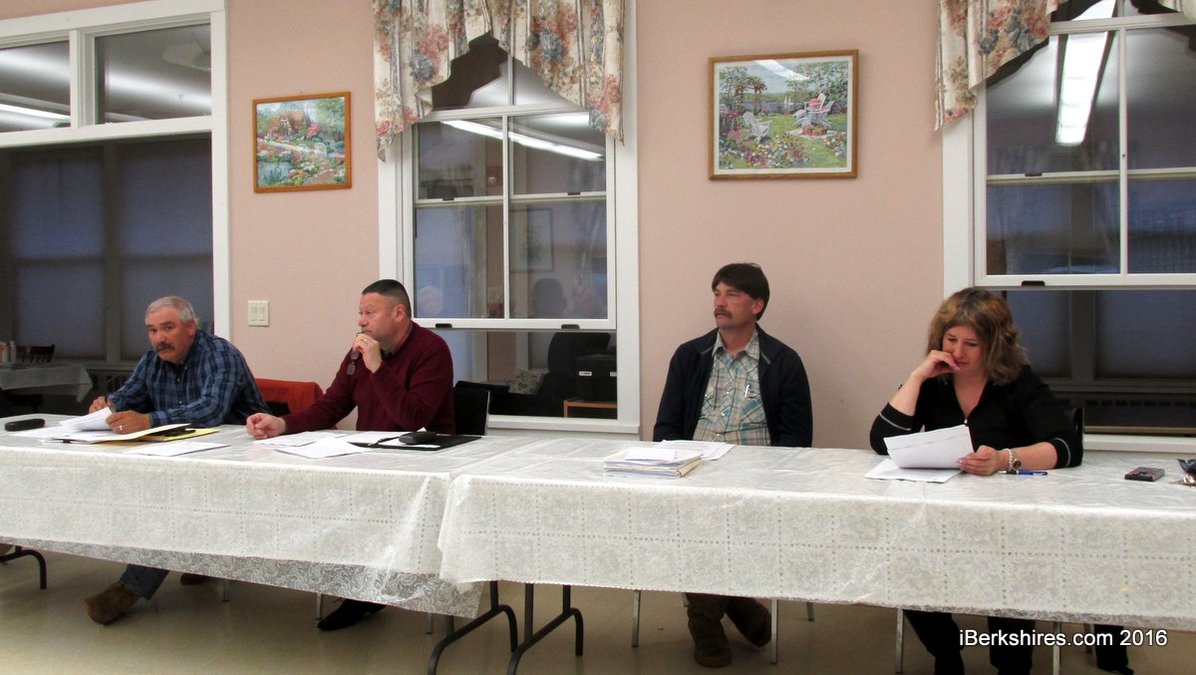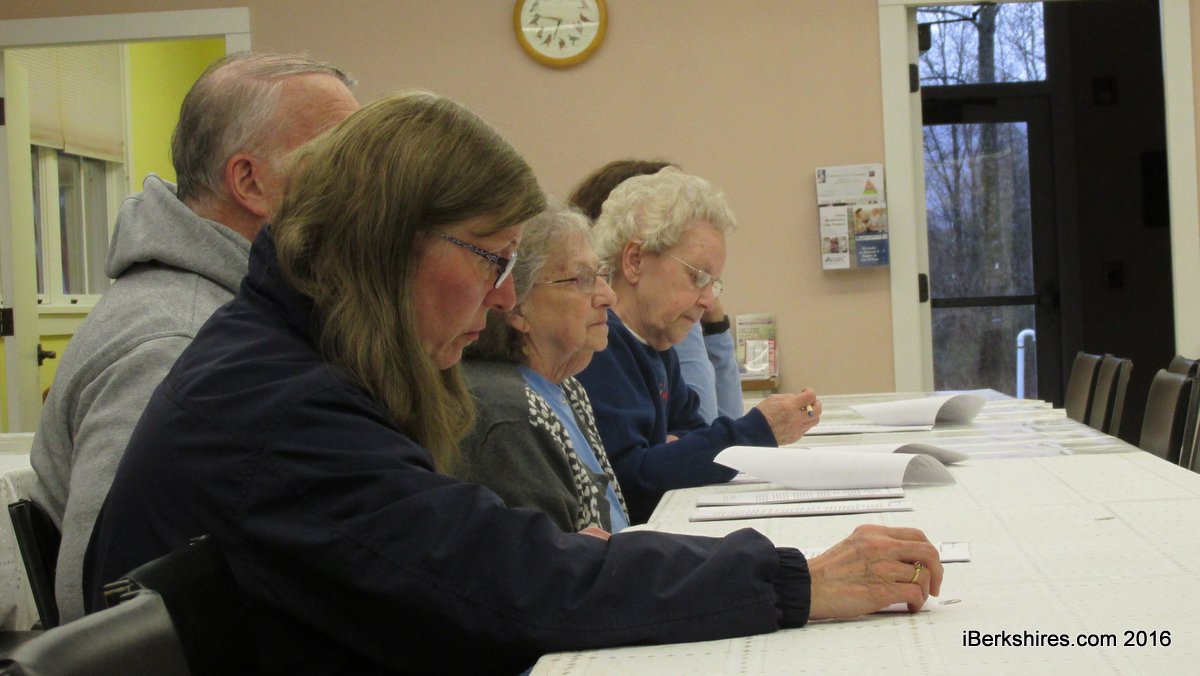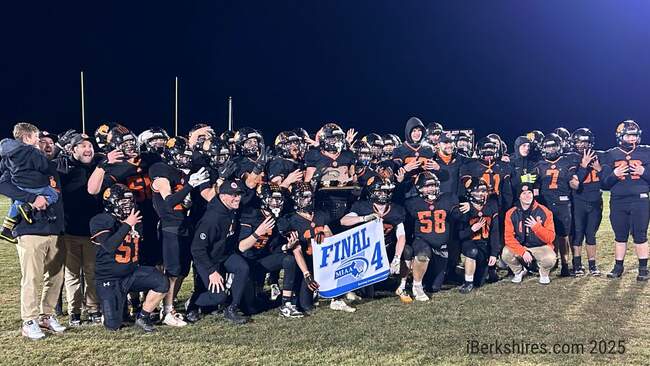
Clarksburg Planners Recommend Wind, Telecommunication Bylaws

CLARKSBURG, Mass. — The Planning Board voted Wednesday to recommend some updates to the town's zoning bylaws to cover wind energy generation facilities and wireless telecommunications.
Town meeting will take up the amendments on May 25.
The board held a brief public hearing on Wednesday at the Senior Center attended by a handful of people. The several amendments were considered priorities as the board reviews the town's zoning, which has changed little since 1993. The board also voted to recommend a few changes in the zoning use table.
The first amendment would cover the installation of wireless telecommunications facilities, essentially cell towers, requiring a special permit from the Planning Board for installation, modification of transmission equipment, or substantial changes. It would exempt, however, local radio such as municipal, emergency or citizens band, and AM/FM radio and broadcast television.
Board Chairman David Sherman said the bylaw is meant to both delineate local standards and to comply with Federal Communications Commission regulations.
"There are a lot of federal laws, they overlap with Mass General Laws. It's confusing," he said. "The more clear we can make it to the town the more direction we have to make sure where ever it does go, it's done right. They need to bring in professionals to guide us along."
One of the conditions in the bylaw is that the applicant pay for an independent consultant to work on behalf of the town in reviewing application materials and monitoring the work.
"We have no clue, as a Planning Board, what the requirements are for telecommunications, but with the bylaw, we can hire an independent consultant," Sherman said. "Also in this bylaw, every five years we can have a independent consultant come in at their cost to do a survey to make sure nothing's changed."
The bylaw also covers height, setbacks, impacts, and abandonment.
The wind energy generation bylaw would ban large systems, similar to those on Florida Mountain, outright but allow for smaller wind turbines by special permit in all zones.
"There's a distinction between what you see on the mountain and what somebody might want in their back yard," said Sherman.
Small systems would be allowed by special permit through the ZBA. Sherman said the ZBA has more knowledge of setbacks and other requirements than the Planning Board.
There are a couple spots that meet the wind-speed criteria where a large turbine — defined as exceeding 100 feet in height at the tip of the blade — could be located: on West Road and a small tract on East Road. Both have residences near them and below them.
"We've had numerous complaints from people living along East Road of noise that they're receiving from the ones in Florida," said Town Administrator Carl McKinney. "This would bring it that much closer."
The board agreed, saying the prohibition would protect residents.
The senior housing update is following through on a change made some 10 years ago, when the town applied for funding for senior housing on industrial-zoned land it owns behind the Senior Center. The project could not go forward without the zoning tables being changed to allow it. But the project fell through when the economic global collapse hit and the change was never formalized through the attorney general's office.
"Our forefathers, back in '93, didn't feel elderly housing should be in industrial zone areas," Sherman said. "We wanted, as we were going through this process, we wanted to capture it."
By allowing senior housing to be permitted by right in industrial zones, it's thought the town would be ready should the plans be resurrected.
"I'm sure you'd want to stay here instead of moving out of town," Sherman said.
The changes to the table also include allowing private, nonprofit clubs or lounges to locate in the agricultural-residential, residential and commercial districts by special permit from the Planning Board. They are currently allowed by right.
"The problem with making them allowed, the Planning Board does not have any oversight regards to parking, their bathrooms or accessibility," Sherman said. "With this use table change, we can take a lot of that burden from the building inspector ... before anybody buys a piece of property they can see it requires a special permit by the Planning Board. It gives them a heads up ... before they purchase that property."
In response to questions, Sherman said the language for the mostly "cookie cutter" amendments came through the Berkshire Regional Planning Commission. The town received a technical grant that is helping the Planning Board and Zoning Board of Appeals review and update the bylaws.
These two bylaws being adopted came by way of Cheshire, which recently updated its zoning through the BRPC.
"We had two areas that we didn't have a bylaw so we're using their language and orders of condition," Sherman said. "We changed some of it, but the bulk of it came from Berkshire Regional Planning Commission."
The boards have been working with BRPC Senior Planner Brian Domina on the updates. Planner Thomas Jammalo said Domina has been working with them about a twice a month in reviewing the drafts.
"He was a huge help to us and as a board we can't thank him enough," Sherman said.
The amendments are available below or in hard copy at Town Hall. Town meeting will be held on Wednesday, May 25.
Clarksburg Bylaw Amendment on Wind, Housing by iBerkshires.com
Clarksburg Bylaw Wireless Telecommunications by iBerkshires.com
Tags: bylaws, Planning Board, public hearing, town meeting 2016, zoning,















